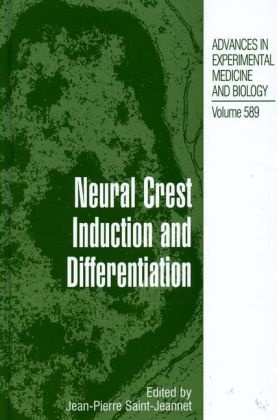Mehr lesen
This book covers cell-cell channels at all levels of biological organization. The purpose of this book is to document that cells are not physically separated and fully autonomous units of biological life as stated by the currently valid Cell Theory. If not the cell then some lower level unit must fulfill this role. The book deals also with the identity of this elusive unit of biological life.
Inhaltsverzeichnis
Cell-Cell Channels and Their Implications for Cell Theory.- Mating Cell-Cell Channels in Conjugating Bacteria.- The Tetrahymena Conjugation Junction.- Cytoplasmic Bridges in Volvox and Its Relatives.- Vegetative Hyphal Fusion in Filamentous Fungi.-Plasmodesmata: Cell-Cell Channels in Plants.- Sieve-Pore Plugging Mechanisms.- Actin and Myosin VIII in Plant Cell-Cell Channels.- Cell-Cell Communication in Wood.- TMV Movement Protein Targets Cell-Cell Channels.- Viral Movement Proteins InduceTubule Formation in Plant and Insect Cells.- Cell-Cell Movements of Transcription Factors in Plants.- Gap Junctions: Cell-Cell Channels in Animals.- Tunneling Nanotubes: Membranous Channels.- Cytoplasmic Bridges as Cell-Cell Channels of Germ Cells.- Fusome as a Cell-Cell Communication Channel.- Cytonemes as Cell-Cell Channels in Human Blood Cells.- Paracellular Pores in Endothelial Barriers.- Channels across Endothelial Cells.- Molecular Transfers through Transient Lymphoid.- Cell-Cell Transport of Homeoproteins: With or Without Channels?.- Virological Synapse for Cell-Cell Spread of Viruses.- Cell-Cell Fusion: Transient Channels Leading to Plasma Membrane Merger
Zusammenfassung
he biological sciences are dominated by the idea that cells are the functionally autonomous, physically separated, discrete units of life. TThis concept was propounded in the 19th century by discoveries of the cellular structuring of both plants and animals. Moreover, the ap parent autonomy of unicellular eukaryotes, as well as the cellular basis of the mammalian brain (an organ whose anatomy for a long while defied attempts to validate the idea of the cellular nature of its neurons), seemed to provide the final conclusive evidence for the completeness of *cell theory', a theory which has persisted in an almost dogmatic form up to the present day. However, it is very obvious that there are numerous observations which indicate that it is not the cells which serve as the basic units of biological life but that this property falls to some other, subcellular assemblage. To deal with this intricate problem concerning the fundamental unit of living matter, we proposed the so-called Cell Body concept which, in fact, devel ops an exceedingly original idea proposed by Julius Sachs at the end of the 19th century. In the case of eukaryotic cells, DNA-enriched nuclei are intimately associated with a microtubular cytoskeleton. In this configuration—as a Cell Body—these two items comprise the fundamental functional and struc tural unit of eukaryotic living matter. The Cell Body seems to be inherent to all cells in all organisms.

